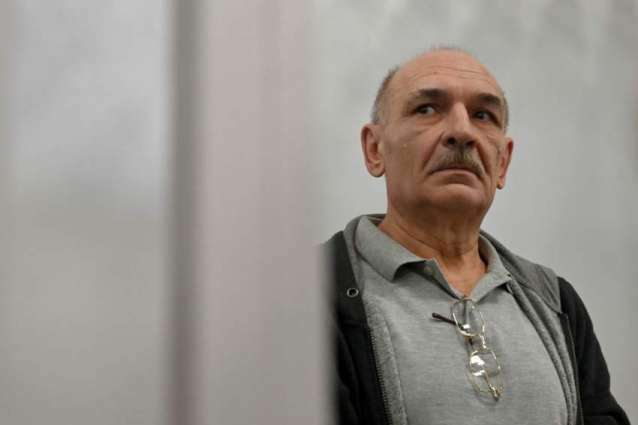The Dutch Public Prosecution Service (PPS) has accused Russia of failing to execute the kingdom's extradition request for Vladimir Tsemakh, a former Donbas militia commander and a suspect in the case of the 2014 MH17 plane crash, by willingly letting him return to eastern Ukraine after his arrival in Moscow as part of the recent simultaneous release of detainees with Kiev
MOSCOW (Pakistan Point News / Sputnik - 02nd December, 2019) The Dutch Public Prosecution Service (PPS) has accused Russia of failing to execute the kingdom's extradition request for Vladimir Tsemakh, a former Donbas militia commander and a suspect in the case of the 2014 MH17 plane crash, by willingly letting him return to eastern Ukraine after his arrival in Moscow as part of the recent simultaneous release of detainees with Kiev.The MH17 flight with 298 people on board crashed on July 17, 2014, in eastern Ukraine, while en route to Kuala Lumpur from Amsterdam, leaving no survivors. Kiev and the self-proclaimed republics in Ukraine's southeast have blamed each other for the downing of the Malaysia Airlines' plane.
According to the PPS, the Joint Investigation Team (JIT) questioned Tsemakh several times in an Ukrainian prison but "could not prevent Mr Tsemakh from being transferred to the Russian Federation on 7 September 2019 as part of a prisoner exchange."
"To prevent that Tsemakh would evade the investigation, the PPS immediately requested his arrest for the purpose of extradition to the Netherlands. The Russian Federation does not extradite its own citizens but since Mr Tsemakh is a Ukrainian citizen, there were no impediments for his extradition," the prosecution service said.
Russia confirmed that it had received the extradition request for Tsemakh the same day when the plane with the exchanged detainees landed in Moscow, according to the PPS. The man, it says, was not arrested, though the Netherlands warned Russia about the "possible flight risk."
"On 23 September 2019 the Russian authorities informed the PPS that they were considering the request, but required additional information. In later correspondence even more information was requested, which was repeatedly provided," the PPS said.
Senior Dutch officials have since communicated calls for cooperation to Russia on multiple occasions, according to the statement.
"On 19 November 2019 the Public Prosecution Service received notification from the Russian authorities that the request for the arrest of Mr Tsemakh could not be executed because no information regarding the whereabouts of Mr Tsemakh in the Russian Federation was available," the PPS said.
Media reports, the PPS notes, suggest that Tsemakh has returned to Donbas, from which he cannot be extradited.
"The Public Prosecution Service has concluded that Russia willingly allowed Mr Tsemakh to leave the Russian Federation and refused to execute the Dutch request. While under the European Convention on Extradition, it was obliged to do so," the statement added.
The investigation into the MH17 crash is being conducted by Dutch prosecutors and the Dutch-led JIT, which has accused Russia of being behind the downing. According to JIT, Flight MH17 was brought down by a missile that came from the 53rd Anti-aircraft Missile Brigade of the Russian Armed Forces, based near Russia's city of Kursk.
Moscow has repeatedly denied the JIT accusations of having a role in the MH17 crash and said that these claims were unfounded while the investigation itself was biased. The Russian Defense Ministry has said that in 2011, the Russian authorities disposed of all the missiles from the series that included the missile whose engine the JIT demonstrated as an evidence to prove Russia's involvement in the downing of the plane.




